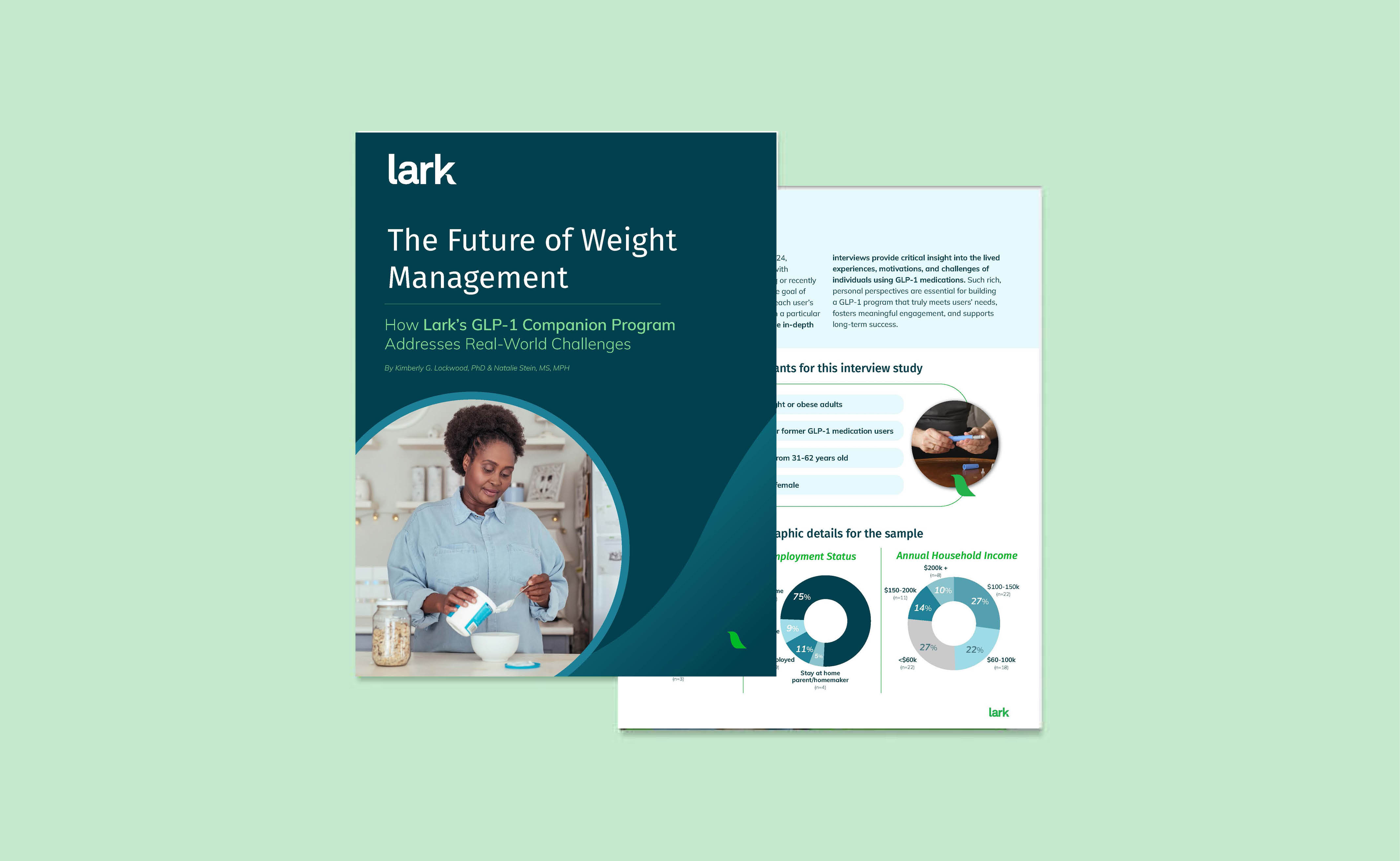I’ve worked in digital health for a long time and am constantly amazed at how innovators take on some of health care’s greatest challenges — everything from removing barriers to care to new therapies that help people better manage conditions.
Right now, however, I’m seeing that many in digital health are incorrectly approaching the opportunity to address one of the most significant public health crises we have ever faced — the obesity and metabolic disease epidemic in the U.S. New and highly promising GLP-1 medications (like Ozempic) could be game changers, but in the scramble to get these treatments to as many people as possible, many in digital health are missing the big picture — these medications are simply not the best treatment for everyone. The first priority should be getting these medications to the right people — not just the most people — and helping them succeed.
GLP-1 drugs are costly — often costing1 $1,000 per month or more — and difficult for many people to take successfully. One analysis2 found that 68 percent of patients starting GLP-1s for weight loss were no longer taking the medication after one year, and as many as 50% stop these medications in the first month. Ultimately, they are just not the right solution for everyone. And treating them as a one-size-fits-all solution, or the silver bullet for obesity, could result in massive costs for health plans, employers, and ultimately for consumers — with few results to show for it. (A recent Business Group of Health survey3 found that 85% of employers reported concern around the long-term cost implications of GLP-1s and other weight management medications.)_
Instead of looking at this as a one-size-fits-all approach, we need to be focused on getting these drugs to the people who need them most, while offering others weight management solutions tailored to their needs.
To start, the digital health community needs to focus our attention on the patients who need these treatments the most.
A recent New York Times piece examined how in New York City, GLP-1 medications are primarily going to the city’s wealthiest zip codes4. We know that it is not a hotspot for metabolic diseases. It doesn’t help to expand access to these drugs if they are not getting to the people who would benefit most. But it happens because, as it stands, the current GLP-1 clinical guidelines are quite permissive. In addition to including people with a BMI of 30 and over or with a BMI of 27 and over and a comorbid condition. By that definition, even I qualify for a GLP-1. And if everyone like me who was eligible under these guidelines were given these drugs, it would send our healthcare system into financial collapse.
Instead, digital health companies must focus on responsible prescribing and to balance the clinical indications with the financial considerations. This includes working with skilled clinicians who have extensive experience in obesity management to fully qualify, screen, and support potential GLP-1 patients.
Responsible prescribing is just the beginning.
The next step is to supplement GLP-1s with focused clinical monitoring, education and dedicated support to encourage behavior change. Offering these services are particularly important, since GLP-1s alone won’t lead to long-term success. Patients need proper nutrition, activity, and continued guidance to ensure that they stay on these medications, remain healthy while taking them, and sustain weight loss once off of them. Digital health companies have the technological expertise and capabilities to make this happen, and to happen at scale, which is critical as we deploy GLP-1s to more of the population.
Lastly, we can’t abandon those who are not good candidates for GLP-1s either.
We also need to be spending similar efforts on deploying weight management tools that are better suited for those who cannot tolerate GLP-1s or are not good candidates for the drug. That’s another place where digital health solutions are well-equipped to fill in the gaps. For example, app-guided therapy may be just as effective in helping patients adhere to their GLP-1 regimens as it can be for engaging patients who are not taking these medications. This type of coaching has already been shown to help patients lose weight and simultaneously improve chronic conditions like diabetes and heart disease through nutritional and activity counseling, and promoting healthy behaviors.
It’s clear that GLP-1 medications are a game-changer in our efforts to address the obesity epidemic and that digital health solutions can play a significant role in augmenting the effects of these treatments. But digital health companies need to think critically about our role in supporting patients. We have a unique opportunity to make a difference, but we need to do it the right way.
1https://pharmacist.com/Publications/Pharmacy-Today/Article/glp-1-receptor-agonists-breaking-down-the-hype-and-demand#:~:text=Cost,coverage%20can%20also%20be%20limited.
2https://www.primetherapeutics.com/news/real-world-analysis-of-glp-1a-drugs-for-weight-loss-finds-low-adherence-and-increased-cost-in-first-year/
3https://www.businessgrouphealth.org/resources/2024%20large%20employer%20health%20care%20strategy%20survey%20intro
4 https://www.nytimes.com/2023/08/26/nyregion/ozempic-nyc-neighborhoods-diabetes.html












.webp)






